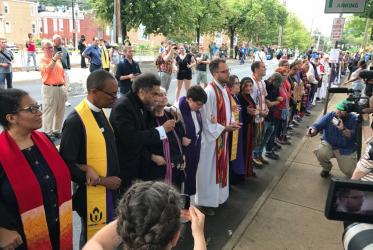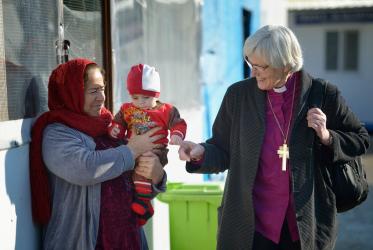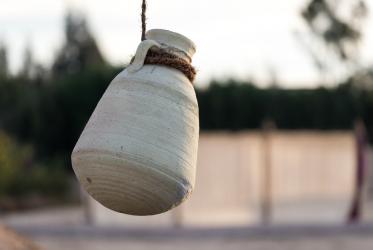Displaying 161 - 180 of 304
Seminar explores how populist rhetoric leads to racism
07 September 2017
Orthodox bishops in USA condemn racist violence
31 August 2017
Presbyterian leaders: racism in USA is “pernicious poison”
31 August 2017
Religion meets science in forum at WCC
09 August 2017
G20 summit: call to pray for peace in Hamburg
07 July 2017
WCC condemns terror attack on evacuees in Syria
16 April 2017
Church leaders unite their voices against modern slavery
09 February 2017
“When everybody is building walls, the church can build bridges”
30 January 2017
“We can’t go back as long as we know we are not secure”
26 January 2017
Church in German state is a partner for refugees and society
20 December 2016
Being Church in Europe Today: Migration through a theological lens
14 December 2016
Eco-justice at stake for Standing Rock people in USA
07 November 2016















